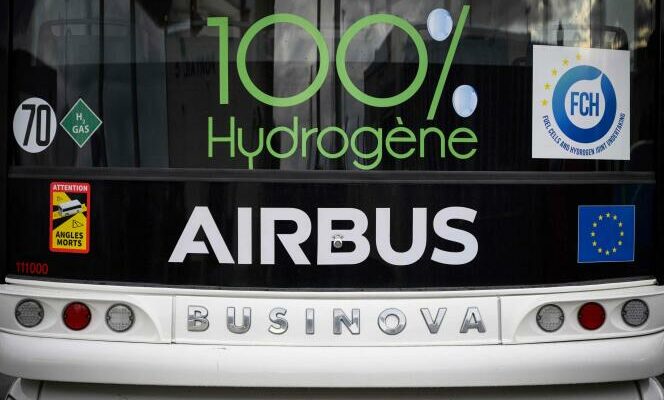Gaz the lightest and main chemical component of the universe, hydrogen resembles a mirage. It is present everywhere but so difficult to grasp. Since the tocsin of global warming sounded, it is regularly given as the solution to bring our planet out of the age of fossil fuels. Its combustion does not emit greenhouse gases. The only problem is that most of the Earth’s hydrogen is present in the form of water. And extracting it from the water and transporting it properly is prohibitively expensive.
This is being discussed at the COP28 summit in Dubai, and all countries, including the most oil-producing ones like those in the Gulf, are deploying heavy investments in this area. In the West and Japan, we also see it as a promise of sovereignty. It remains to find the economic equation that will give it life.
For the moment we are still at the spending stage. In 2021, the French government launched a plan with 9 billion euros by 2030 which aims to create a complete industrial sector. Firstly to supply heavy industry (chemicals, steel, fertilizers), but also transport.
Sponsorship of the Michelin, Stellantis and Forvia groups
This Tuesday, December 5, ministers and CEOs inaugurated an essential link with the first factory of the Symbio company, in Saint-Fons (Rhône). Nicely named “SymphonHy”, it will produce hydrogen fuel cells which transform gas into electricity. It will employ 700 people and plans to produce 15,000 systems in 2024 and 50,000 in 2025. It now remains to find buyers for these devices intended to equip buses, vans or cars. For this, it will be able to count on its prestigious sponsors, since Symbio’s shareholders are the Michelin, Stellantis and Forvia groups.
True to his outspokenness, Stellantis CEO Carlos Tavares set out the terms of the equation. His Opel hydrogen van costs 100,000 euros. To achieve a more competitive price, the State will, according to him, have to subsidize 30,000 euros per vehicle for five years, otherwise, “the industry will collapse”, he added.
The government has not committed to this, embarrassed that it is also having to subsidize, with the help of Europe, the clean manufacture of this same hydrogen, mobilizing 4 billion to make up the difference in purchasing a hydrogen green (produced with renewables) and gray, obtained with natural gas and two to three times cheaper. For the boss of Forvia, Patrick Koller, we will have to wait until 2030 before achieving real competitiveness in transport. Will the State have the means to hold out until then?
